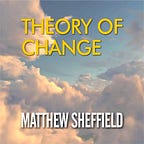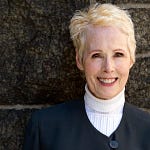Episode Summary
Contrary to the predictions of political consultants and commentators, both of America’s two major parties have continued to be politically relevant since the GOP broke a decades-long congressional losing streak in the 1994 midterm elections. The American government has been closely divided, with each party taking trifecta control of the government only a very few number of times. But even when they did have the trifecta– that is control of the presidency Senate and the House of Representatives– neither party passed much significant domestic policy legislation, aside from some tax cuts by Republicans and the Affordable Care by Democrats.
Fast-forward to the current moment, President Joe Biden has seen his approval rating among fellow Democrats fall recently, as some of his own voters have become dissatisfied. Biden’s more left-wing critics have faulted him recently for not delivering on promises, and they’ve cited polls showing that the public supports their ideas like free college education or universal health care coverage, but they haven’t been able to enact these policy ideas.
Meanwhile, on the other side of the partisan divide, the Republican party has many of its own internal divisions. And they’re not just about Donald Trump, either. Polls have consistently shown that GOP voters don’t really like any other Republican politicians besides Donald Trump, But Trump himself seems to have few actual policies beyond restrictions on immigration. In 2020, he refused to even create an official party platform for the Republican party. And more recently, the Republican Senate leader, Mitch McConnell, refused to say what sorts of policies that he would pursue if the GOP controlled the Senate.
It’s a confusing situation. Republicans won’t talk about policy, and Democrats can’t enact it.
So what’s going on here? In this episode, I was joined by Daniel Cox, director of the Survey Center on American Life, which is a non-partisan project of the American Enterprise Institute that focuses on original research and polling about cultural, political, and technological change in American society. And before that he co-founded the Public Religion Research Institute.
The full transcript, audio, and video of this episode are available to subscribers. Please join today to get full access with Patreon or Substack.




![[Article Image] [Article Image]](https://substackcdn.com/image/fetch/$s_!F_1x!,w_1456,c_limit,f_auto,q_auto:good,fl_progressive:steep/https%3A%2F%2Fsubstack-post-media.s3.amazonaws.com%2Fpublic%2Fimages%2Fc560aa2c-e540-434f-ba14-f78947fda358_1600x800.jpeg)









